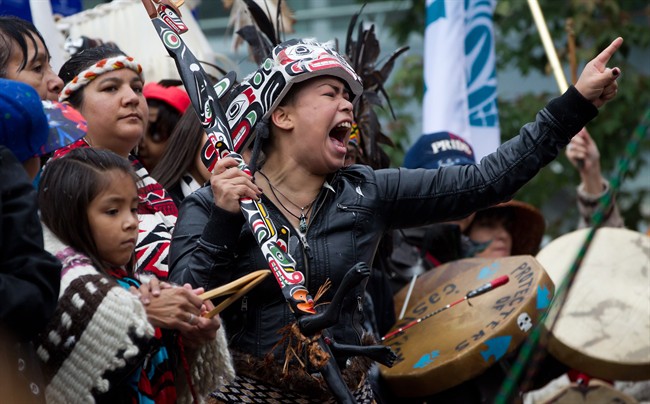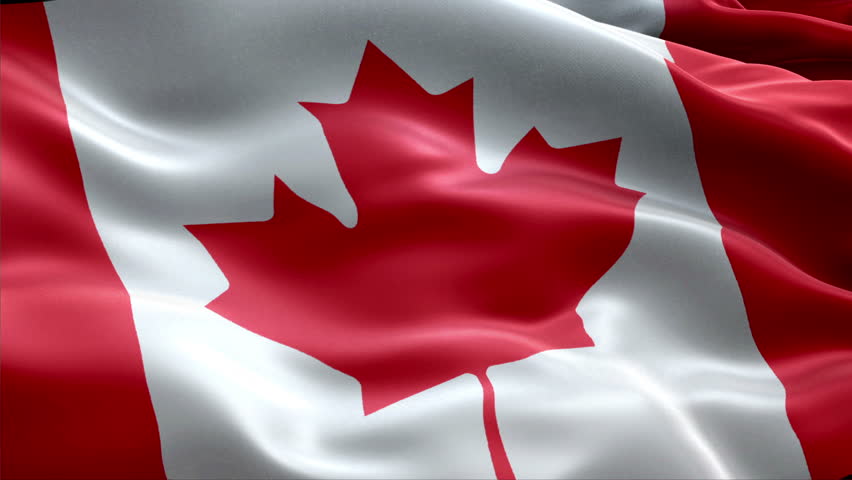Happy 150th, Canada. Time to wave flags, pop champagne (or crack open a beer, chacun son goût) and find a good spot to take in the fireworks on July 1. Ottawa is dropping half a billion dollars on our sesquicentennial, so you might as well get your money’s worth while you can.

Or not. If you ask indigenous Canadians about the anniversary, it’s clear many are not celebrating. Small wonder: Across Canada, many First Nations communities are in crisis. Sixty per cent of First Nations children on reserve live in poverty. First peoples’ life expectancy is five to seven years less than that of other Canadians. One hundred and ten reserves have no potable water.
One could think of a lot of ways that half-billion could be better spent than on parties and flags.
READ MORE: Ottawa slammed on First Nations funding for child welfare, suicide prevention
The shame of Canada’s colonial past is scarcely different from that of many other nations, where indigenous people were subjugated in the interests of economic and geopolitical expansion. Extraction of resources, establishment of trade and commerce and crowding out competitors all amounted to the first order of business for colonizing countries — and First Peoples were in the way. What initial co-operation did exist eventually gave way to policies of assimilation — such as the wantonly cruel residential school system, which ripped apart thousands of families and frequently subjected their children to physical, sexual and psychological abuse.

Had this type of cultural genocide happened today, we’d be protesting it at the United Nations and demanding action. And it is still playing out across the globe: In Syria and Iraq, the so-called Islamic State is enslaving and exterminating the Yazidi people as part of its plan to recreate the Islamic Caliphate. Russia invaded Crimea in 2014 and has killed 10,000 people since. The horrific practice of ethnic cleansing continues around the world, from Myanmar to South Sudan.
For centuries, there was no place or means to grieve the injustices heaped on Canada’s indigenous peoples, and they went largely unacknowledged. And even when the decolonization and civil rights movements swept the globe in the latter half of the twentieth century, a different national drama took centre stage in Canada: Quebec separatism.
WATCH BELOW: First Nations to ‘participate’ in Canada 150 by celebrating future

From the 1960s to the 1990s, relations between Canada’s two solitudes came to the boiling point more than once: the rise of the Front de libération du Québec, the creation of the Parti Québécois, the holding of two Quebec referenda on independence, the patriation of Canada’s Constitution without Quebec, and two failed attempts at constitutional reform — the Victoria Charter and the Meech Lake Accord. A third proposal, the 1993 Charlottetown Accord, attempted to establish a new relationship with First Nations as well, but was defeated in a national referendum.
Ironically, while French and English Canada were debating whether to stay together, and First Nations were struggling to keep their culture and communities alive, immigrants from around the world wanted nothing more than to make Canada their home.
- Budget 2024 failed to spark ‘political reboot’ for Liberals, polling suggests
- Train goes up in flames while rolling through London, Ont. Here’s what we know
- Peel police chief met Sri Lankan officer a court says ‘participated’ in torture
- Wrong remains sent to ‘exhausted’ Canadian family after death on Cuba vacation
Since the Second World War, over 10 million immigrants have come to Canada; many of them have become the most enthusiastic of patriots. On this 150th, they celebrate what Canada represents to much of the world — a nation of freedom and peace, of vast natural beauty and economic opportunity. And we can expect this to continue: As America loses its lustre, Canada is assuming the mantle of the ‘shining city on the hill’ — or the shining country at the top of the world.
We’ve got work to do, living up to that reputation. This starts by acknowledging that, rather than having two founding peoples, we actually have three sets of nation-builders. Our First Peoples occupied this land for thousands of years pre-conquest and before Confederation, building societies and nations across its vast expanse. The descendants of the nations of England and France established the early framework of modern Canada and the bulk of its social and political institutions. And millions of immigrants from other nations — those who fled a devastated Europe, the oppression of Soviet communism, the poverty and political upheavals of the developing world and, most recently, the brutal dictatorship of Bashar al-Assad and the scourge of the Islamic State — have for the past 70 years asserted their influence in our nation’s public and private sphere.
READ MORE: Pope’s apology for residential schools key step for reconciliation: survivor
These three groups have shaped modern Canada. The challenge for our nation’s next 150 years is for them to find a way not simply to coexist, but to thrive and assert their identities, individually and collectively. I’m not a believer in hyphenated Canadians, but neither do I think people should have to check their history at the front door. Today, multiculturalism is a strategic advantage for Canada, as our diverse perspectives give us a unique appeal in the world.
At the same time, we have to do more to find common causes. I use that phrase ‘common cause’ because in our politics, the term ‘shared values’ has become code for the values of one group: the English ‘old stock’ or French ‘de souche’ Canadians, who together constitute the second of the three nation-building groups. Some of those ‘values’ included the assimilation of First Nations and efforts to isolate and marginalize new immigrants — beliefs that should have no place in modern Canada.
WATCH BELOW: Mosaic to help celebrate multiculturalism and Canada’s 150th birthday

Other values, however, have helped make Canada a destination for the dispossessed around the world. Individual freedom. Equality before the law. The separation of church and state. Gender equality. The right to an education and the establishment of a functioning social safety net (even if it sometimes resembles a hammock).
But if we are to live together as one society, everyone cannot have everything. All three groups will have to put some previous beliefs aside and adopt new ones. Implementing the equality of men and women, for example, means letting go of belief systems that favour boys and men over girls and women in the home, in school and in places of worship.
Ending discrimination in the workplace means putting aside prejudices that favour straight white men over other candidates for employment and advancement. Ending the assimilation of First Nations means moving beyond the Indian Act to a form of self-government that respects indigenous traditions but also adheres to Canadian law. And ensuring that we retain our freedom means recognizing choices in how individuals live, love, and establish their personal lives — as long as those choices respect the bounds of our laws and do not infringe on the well-being and freedoms of others.
READ MORE: Canada at 150: Many indigenous people see little reason to celebrate
On our 150th birthday, Canada is at a crossroads. We cannot rewrite the past, but we can heal the wrongs. And then, we can (and must) move on together. If we only dwell on what was, we’ll remain stuck in the quicksand of grievance.
In a world that desperately needs hope and guidance, we cannot let that happen. We must engage in a dialogue of optimism and opportunity, one that includes all Canadians: those who were here first, those who came after, those here now and those yet to come.
Tasha Kheiriddin can be heard between noon and 2 p.m. ET on Toronto Talk Radio AM640. She’s also a columnist with Global News and iPolitics.ca, where this piece first appeared.








Comments